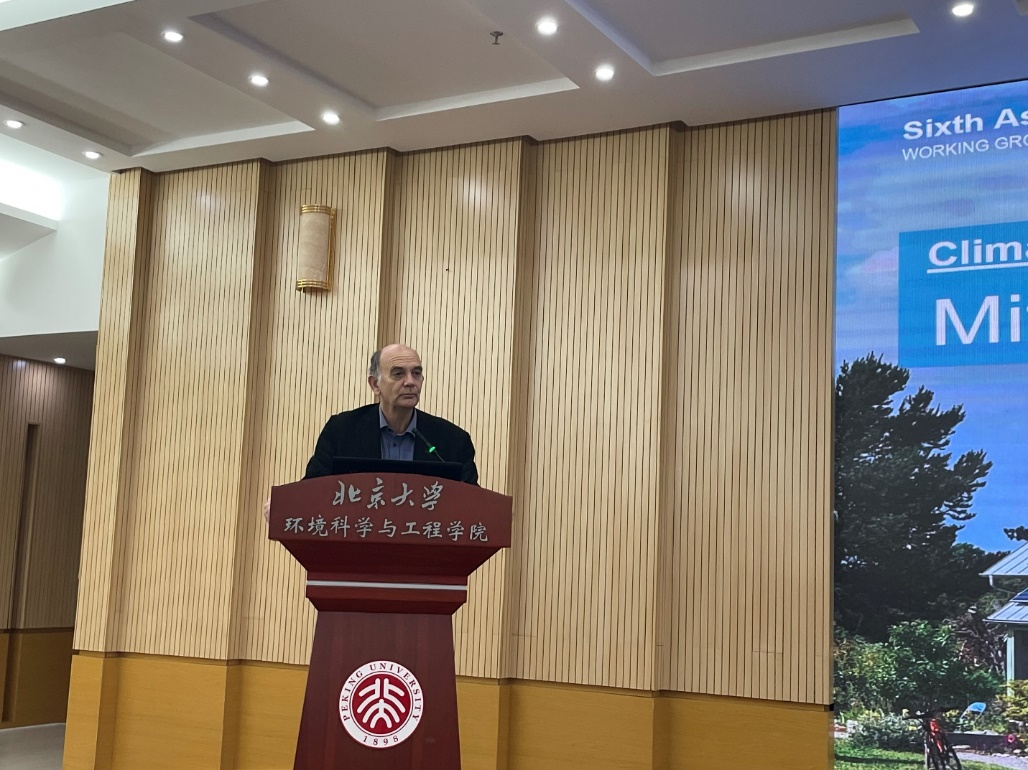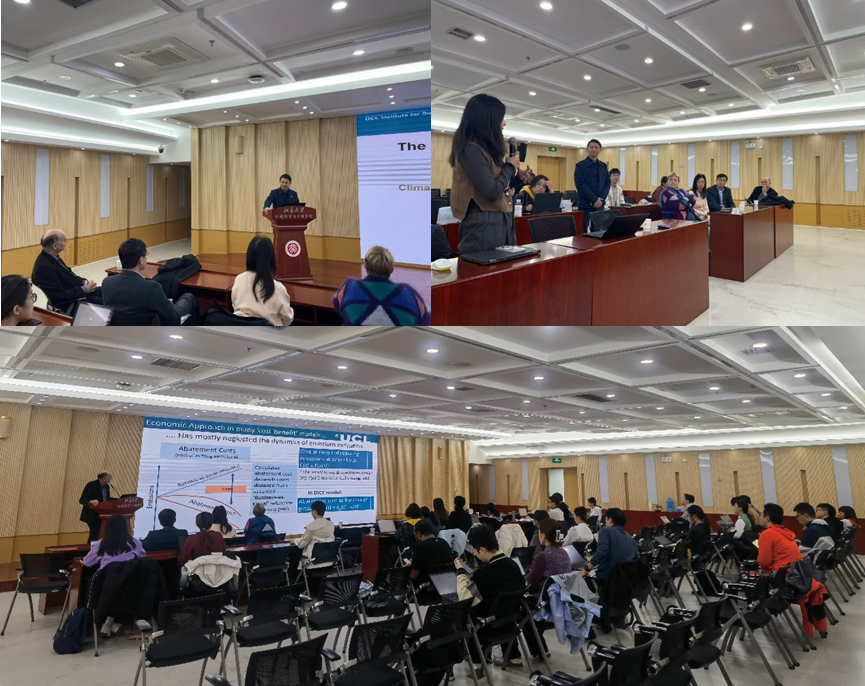Peking University, November 18, 2024: "Achieving a net-zero future demands more than just technology—it calls for rethinking systems, creating bold policies, and uniting nations and communities worldwide," said Michael Grubb, Professor of Energy and Climate Change at University College London (UCL) at the Climate and Environmental Sustainability Management Forum held at Peking University (PKU) on November 9, 2024.

Organized by the College of Environmental Science and Engineering (CESE), the forum gathered distinguished international guests and students from various disciplines, to present academic reports on the topic “The Transition in the Economics of Climate Change and Energy.” Dai Hancheng, Associate Professor and Chairman of the Department of Environmental Management at CESE, hosted the event. Prof. Michael Grubb, Prof. Guy Shaojia Liu, and Dr. Pu Yang were invited to the forum.
Prof. Grubb, Director of the UCL Centre for Net Zero Market Design, brought over 30 years of expertise in energy systems, climate policy, and carbon pricing to the session. The discussion highlighted several major themes, including climate change risks, technological innovation, and the investment challenges in transitioning to low-carbon energy futures.
Highlighting recent trends in the climate policy of various countries, Prof. Grubb focused on China’s role as the country accounts for 25% of global emissions, though its per capita emissions are lower than those in developed nations like the U.S. He also discussed emissions disparities across regions like Latin America, Southeast Asia, and Africa.
Citing the rapid cost reductions in solar PV, batteries, and electric vehicles over the last decade, Prof. Grubb highlighted how scaling up these technologies, particularly in China, has driven dramatic cost declines, offering insights into pathways for global energy transition. “Innovation alone won’t suffice,” he said. “It’s about scaling technologies, expanding supply chains, and creating supportive policies to drive real transformation.”
When asked whether current technological advancements are sufficient to meet global net-zero goals, he offered a nuanced perspective, suggesting that while existing technology could cover roughly 80% of the pathway, innovation would be essential to fill the remaining gap.
The role of developed countries in global decarbonization extends beyond environmental concerns and is deeply rooted in political and economic issues, Prof. Grubb emphasized. He argued that developed nations must take the lead in providing financial support to developing nations, where the deployment of renewables is often hindered by limited financial mechanisms and high interest rates. “Solar electricity is cheaper in Germany than in Africa,” he explained, despite Africa’s rich solar resources and lower labor costs. This price difference, he noted, underscores the critical need for financial mechanisms that addresses these challenges.

Prof. Grubb concluded his talk with an inspiring vision for the future, highlighting how targeted policy, international cooperation, and social innovation can drive meaningful change in climate action. His visit inspired profound reflection on our collective role in shaping a sustainable future. As he rightly put it, “No wind favors those who don’t know where they are going”—a powerful reminder that a clear vision is essential in the fight against climate change.
Note: The author acknowledges Prof. Dai Hancheng, his students Chui Tsoi Kwan and Zhou Ziqiao, and Prof. Michael Grubb's assistance in preparing this article.
Reported and written by: Pralhad Gupta